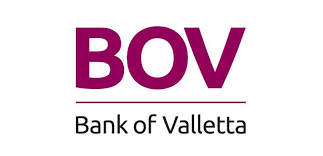On the 5th of July, the Vice President of the Chamber, Michael Galea, and the CEO, Daniel Borg, participated in a meeting of the Standing Committee on Gozo Affairs. The topic under discussion was ‘Development in Gozo’. In his intervention Michael Galea highlighted the importance of the environment, and the excessive rate of development on the island. He remarked how while the present rate of development is being deemed as excessive, this is only a part of the development which has already been approved, but which has not yet started because of the lack of workers in the construction sector. He appealed to the architects, developers and the Government, in order to have in place quality buildings which are in harmony with the environment in which they are situated. He concluded his intervention by highlighting the principle that we are guardians of the environment, and to this end every action of ours should be targeted towards preserving and enhancing the common good.
Daniel Borg, delivered a presentation on the Chamber’s postion paper. He higlighted how the Chamber was one of the first entitites to support the stance taken by Gozitan mayors on construction and the environment, and that it had also issued a common position together with the Malta Chamber of Commerce and Industry. Daniel Borg remarked how the construction and real estate sector in Gozo contribute almost double in terms of the Gross Value Added than the main island of Malta. In its position paper the Chamber was identify four main issues:
- The Preservation of the Green Belts around villages and towns
- The conservation of urban conservation areas.
- The Quality, Height, and Intensity of Buildings in Development Areas that are outside urban conservation areas.
- The capacity for further development in Gozo, and what studies are being done to determine the relation between demand and supply, vis à vis the approved units and the pressure these are putting on the island ‘s infrastructure
The Position Paper highlights a number of long term proposals:
- In revising the Strategic Plan for the Environment and Development (SPED) the overarching priority should be the diversification of the Gozitan economy by using areas which are not land intensive. When land needs to be used, this should be done by regenerating already industrialised or disturbed areas
- The Government should initiate the process for the revision of the Local Plans in consultation with society in Gozo. The contribution of Local Councils to this effect is of paramount importance. They should not be merely consulted but should be taken on board as an integral part of the revision process.
- In the long term, permitted development should take into consideration the intensity of development which the street, neighborhood and locality are capable of accommodating, including the impact on infrastructure, on street parking and the quality of life in general.
- The Planning Process should also look into the fact that when new roads are being planned, this should also include the provision of services so as the ensure the inclusion of all services (electricity, telephony, internet) underground.
The Position Paper also presents a number of short to medium-term measures:
- Specific Schemes targeted towards the renovation of old houses while making them more energy efficient. This should be accompanied with legislative changes facilitating the acquisition of old properties which encounter difficulties in the process of being sold (e.g title of ownership).
- Houses which are bought to be renovated and lived in, and are not redeveloped into apartment blocks would fall within a reduced property tax regime, with a more favourable tax regime for houses outside UCAs.
- Enforcement of already existing measures e.g. Airconditioning units, installation of photovoltaic modules, and visibility of services.
Moreover, it is important the Planning Process considers also the following aspects:
- Consider further the involvement of Local Councils and the community. This process should be a gradual one, equipping Local Councils with the required human and technical resources, and starting with certain applications first.
- Introduce stricter and more stringent design guidelines: (a) having similar facades; (b) specific design and colour coordination schemes assigned for identified areas.
- Height limitations not regulated through a blanket policy but consider transition mechanisms in line with existing buildings in the area.
- Justifications provided in determining applications in rural areas to be scrutinised more effectively.
Daniel Borg concluded his intervention by highlighting how this position paper was the outcome of various discussions within the Chamber, especially with stakeholders involved in the construction and real estate sector, and therefore attests to the validity of the position paper being presented.
Other NGOs active in Gozo also participated in the meeting.
One can view the whole meeting by clicking here.
You can download the presentations & interventions from here:


























